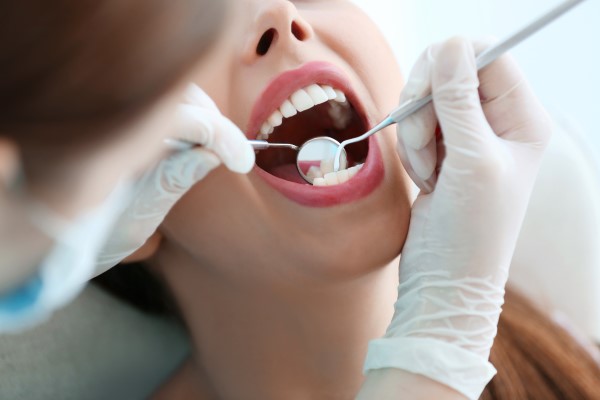Ask a Family Dentist: Is it Bad to Share a Toothbrush?

Talk to a family dentist and they will likely tell you sharing a toothbrush is never a great idea. Sure, it might seem romantic to share a toothbrush with a partner, but what you are really sharing are your germs. When it comes to these microorganisms, sharing is certainly not the same as caring. According to a survey performed by Match.com, about 22% of those surveyed admitted to using someone else's toothbrush. Even worse, about 76% of them never fessed up about what they did to their partners.
A family dentist explains why you should not share toothbrushes
It is easy to figure out why so many people seem to think it is okay to share a toothbrush with their partners. After all, saliva is often transferred when people smooch, and it is natural to assume sharing a toothbrush is not much different. However, sharing a kiss with someone and sharing their toothbrush are completely different things.
A person's mouth contains millions of bacteria and other dangerous microorganisms. Some of these can be transferred from person to person when a toothbrush is shared. Germs that cause herpes, the flu, colds and gum disease can be transferred when people share toothbrushes. Kissing a person does not involve the transfer of as many germs as scrubbing the bacteria and plaque from someone else's teeth on yours.
When people kiss, they only share saliva. When a person uses someone else's brush, they may very well be introducing the bacteria and viruses in the person's mouth into their bloodstream. Some people bleed from their gums when they brush due to periodontal disease or brushing too hard. Any viruses in the blood can be transferred to the brush, and they can live there for extended periods. When another person uses that same brush, these microbes are introduced into their bloodstream, especially if that person also bleeds while brushing.
Theoretically speaking, sharing a brush would not be a bad thing if both parties are healthy and disease-free. The problem is, many people with dental issues like gum disease are not even aware of it. It does not matter how clean a person's toothbrush looks. The things that can be harmful to anyone else who uses the brush are not visible to the naked eye.
Toothbrush substitutes a family dentist recommends
People should look for alternative ways to clean their mouth when a toothbrush is nowhere to be found. A finger with some toothpaste is good enough to use as a temporary solution, and so is a damp, clean piece of cloth or cotton. These alternatives are not as good as having a toothbrush, but they are a lot safer than taking a risk and sharing germs with someone else.
Certain foods like apples can also help to clean teeth when a toothbrush is not available. Every bite the person takes scrubs plaque and bacteria off teeth surfaces. Feel free to stop by our Delray Beach office to talk to a family dentist and learn more about how to take care of your teeth and the things that are bad for them.
Request an appointment here: https://www.palmbeachdentistry.com or call Palm Beach Dentistry at (561) 225-2057 for an appointment in our Delray Beach office.
Check out what others are saying about our services on Yelp: Read our Yelp reviews.
Recent Posts
Many people may believe that they do not have time for routine dental care, which consists of daily brushing and flossing as well as periodic cleaning by a dentist. Admittedly, these tasks do take some time but should be a priority even in a busy schedule. People who do not take time for brushing, flossing,…
Professional dental cleanings are integral for keeping your mouth healthy. They remove plaque and tartar (hardened plaque) that regular brushing and flossing cannot, leaving your teeth and gums refreshed. Maintaining healthy habits that keep your smile bright and strong is essential to make the most of a dental cleaning. Caring for your teeth properly after…
When patients go for routine dental care, they may or may not have X-rays taken of their mouths. Dentists use these important diagnostic tools to check all layers of the tooth. While a key part of routine care, X-ray imaging may not be taken every visit. Every patient is different, and the recommended frequency for…
Maintaining routine dental care is important for oral and overall health, but many patients have questions about what it consists of beyond daily brushing and flossing. The right answers can help patients of any age understand the importance of providing optimum care for their teeth and the possible issues if they fail to follow through.…


